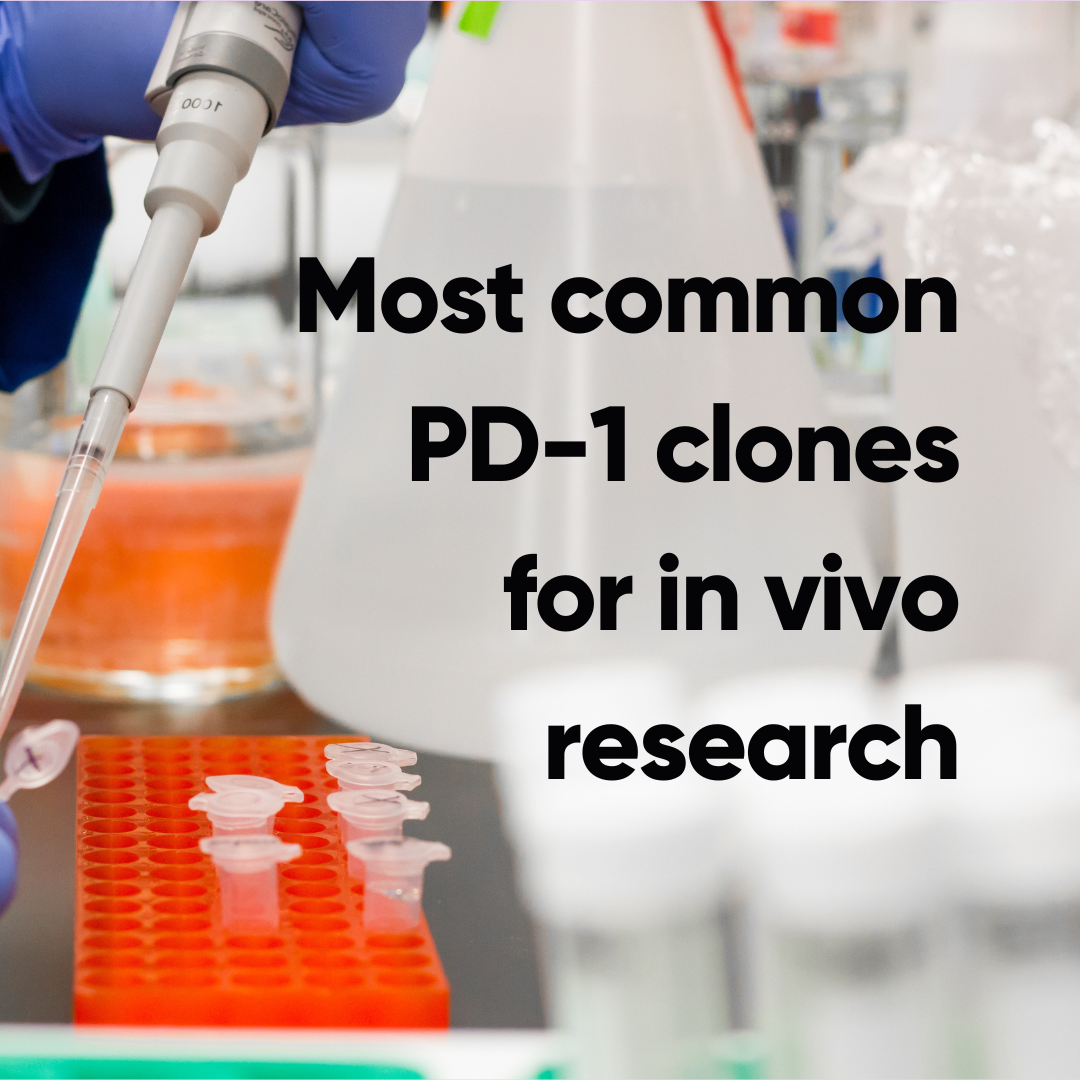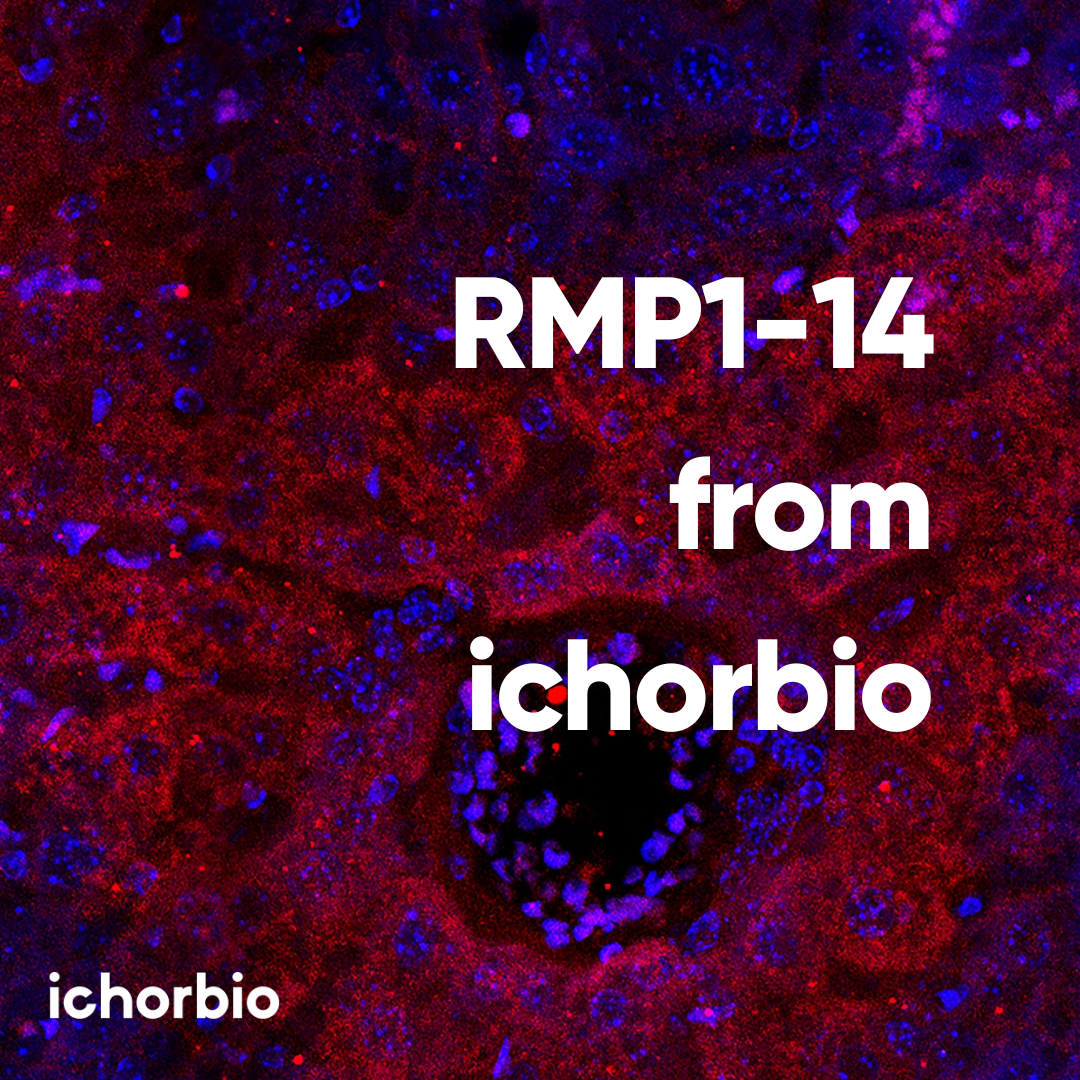Exploring the Most Commonly Used PD-1 Antibody Clones for In Vivo Research

Introduction
Programmed cell death protein 1 (PD-1) has emerged as a crucial target for cancer immunotherapy, with its blockade showing remarkable success in treating various malignancies [1]. To investigate the role of PD-1 in vivo and develop effective therapies, researchers rely on specific antibody clones. In this article, we will discuss the most commonly used PD-1 antibody clones for in vivo research and their relative merits.
1. Clone RMP1-14
RMP1-14 is one of the most widely used PD-1 antibody clones for in vivo studies in mice. This rat anti-mouse PD-1 monoclonal antibody has been extensively employed to investigate the role of PD-1 in various cancer models [2]. RMP1-14 exhibits strong binding affinity to mouse PD-1 and has been shown to effectively block the PD-1/PD-L1 interaction, leading to enhanced anti-tumor immune responses [3].
Advantages:
- Well-established and widely used in the field
- Demonstrated efficacy in multiple cancer models
- Suitable for both therapeutic and mechanistic studies
2. Clone J43
J43 is another popular choice for in vivo PD-1 research in mice. This hamster anti-mouse PD-1 monoclonal antibody has been used to study the role of PD-1 in various disease models, including cancer and chronic viral infections [4]. J43 has been shown to block the PD-1 pathway effectively, resulting in enhanced T cell activation and anti-tumor immunity.
Advantages:
- Proven efficacy in diverse disease models
- Suitable for investigating the role of PD-1 in chronic infections
- Can be used in combination with other immunotherapies
3. Clone 29F.1A12
29F.1A12 is a rat anti-mouse PD-1 monoclonal antibody that has gained attention for its use in in vivo studies. This clone has been employed to investigate the role of PD-1 in various cancer models and has demonstrated the ability to enhance anti-tumor immune responses [5]. 29F.1A12 has also been used to study the combinatorial effects of PD-1 blockade with other immunotherapeutic approaches.
Advantages:
- Effective in promoting anti-tumor immunity
- Suitable for combination therapy studies
- Can be used to investigate the mechanistic aspects of PD-1 blockade
Conclusion
The choice of PD-1 antibody clone for in vivo research depends on various factors, including the specific disease model, research objectives, and compatibility with other experimental components. RMP1-14, J43, and 29F.1A12 are among the most commonly used clones, each with its own advantages. Researchers should carefully consider these factors when selecting the appropriate PD-1 antibody clone for their in vivo studies to ensure reliable and reproducible results.
References
1. Ribas A, Wolchok JD. Cancer immunotherapy using checkpoint blockade. Science. 2018;359(6382):1350-1355.
2. Latchman Y, et al. PD-L2 is a second ligand for PD-1 and inhibits T cell activation. Nat Immunol. 2001;2(3):261-268.
3. Hirano F, et al. Blockade of B7-H1 and PD-1 by monoclonal antibodies potentiates cancer therapeutic immunity. Cancer Res. 2005;65(3):1089-1096.
4. Barber DL, et al. Restoring function in exhausted CD8 T cells during chronic viral infection. Nature. 2006;439(7077):682-687.
5. Iwai Y, et al. Involvement of PD-L1 on tumor cells in the escape from host immune system and tumor immunotherapy by PD-L1 blockade. Proc Natl Acad Sci U S A. 2002;99(19):12293-12297.










